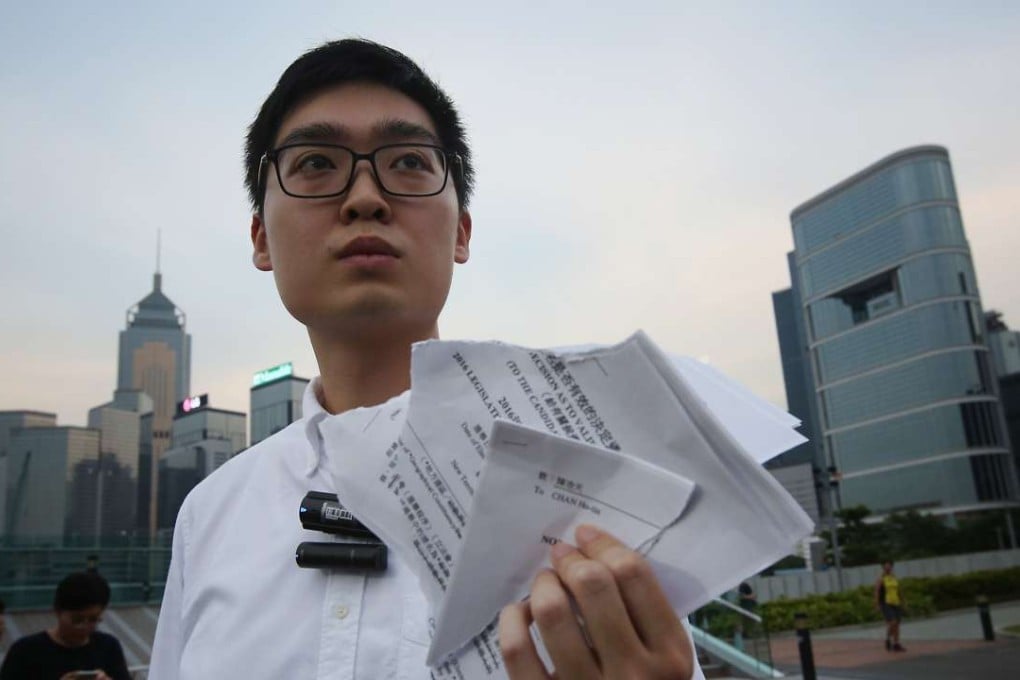Hong Kong National Party convenor disqualified from running in Legislative Council polls
Chan Ho-tin said he received an email from the Electoral Affairs Commission on Saturday which said his application to join the election in New Territories West had been “invalidated”

Chan Ho-tin, whose candidacy was invalidated by the city’s election watchdog on Saturday, is one of a number of localists who refused to sign a recently introduced additional declaration form which reinforces acknowledgement that Hong Kong is an inalienable part of China.
Those who oppose it see the controversial requirement as a tool to censor political thought and suppress the right to stand for election. It’s validity is already the subject of a legal challenge by three potential election candidates.
Some legal experts expressed worries over the government’s move and questioned its legitimacy, while some political commentators saw it as a political decision made by the government to test the public’s reaction on disqualifying pro-independence candidates.
Chan was one of the eight radical localists whose bids had yet to be accepted as of Friday.